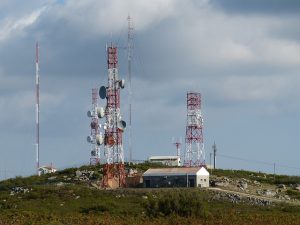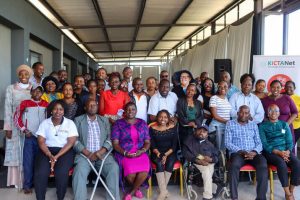Hallo Job
Thank you for the questions and concern you have raised on peering and local traffic. Please find my responses inline within your message.
—– Original Message —–
From: “Job Muriuki via kictanet” <[email protected]>
To: [email protected]
Cc: “Job Muriuki” <[email protected]>
Sent: Thursday, May 3, 2018 12:18:46 PM
Subject: [kictanet] Local IXP (KIXP) peering and Local traffic
Anyone here from Tespok or CA shed some light.
I have a question on what governs local ISP peering in Kenya. There is KIXP at EADC which was set up so to keep local traffic local. Is it open to international carriers like Seacom, Tata, Etisalat, Hurricane electric, China Telkom and others who are present at EADC? Yes KIXP is open to international carriers and they are welcome to peer at KIXP please find the list here: www.tespok.co.ke/?page_id=11646 and offering a total of 115,000 routes through KIXP.
The reason I ask is if you take service, IP transit service from any of the carriers and you are not peering at KIXP your IPs (Local traffic) go all the way to either France or UAE and back to Kenya while they could have just peered at KIXP and offer faster and “affordable” connections. It makes no sense for a connection to ecitizen or a server hosted locally at say Node Africa to have to go to IXPs in other countries and brought back to Kenya getting treated and charged as international traffic. Yes you are correct, we do realise that members are not advertising all their traffic at KIXP. Some it is because they are not getting financial budgetary allocations to upgrade their links and equipment to handle more traffic. Others are may need to send their engineers to our training sessions and discussion evenings so that they can improve the quality and amount of peering.
Is KIXP that unreliable or what is the challenge? I need a clarification on what we have done to be unreliable. The KIXP has never been more stable; ever since the move into EADC we have not had downtime at the IXP. Individual members have had downtime based on various issues that we had hoped would have been addressed in the Critical Infrastructure Bill. When links to the IXP are vandalised the IXP is not able to ensure service delivery of the ISP has not taken up a redundant location to continue peering. A redundant location means that the ISP will connect to at least 2 KIXP locations. If we don’t grow our local capacity to deliver gigabit speeds in our IXP and take advantage of CDNs available locally, will we ever fully utilise the internet and create jobs at the same time without having multinationals come do it? This question is best answered by the ISPs but at the IXP we now have 1Gbps port as the smallest port offering and 7 members are on 10Gbps ports.
Currently getting a data pipe from point A to B over a fiber connection within Kenya is more expensive than getting an internet connection from the same provider which will be carried on the same fiber link as the data pipe which makes absorption of hosting services in Kenya way expensive compared to hosting servers in Europe or America. Most Kenyans and even some government agencies result in hosting services overseas and the users are in Kenya then what is the point of investing in fiber locally and have it rot underground while cash is sent to companies out there for a service we can provide locally?
The convergence of Technology and Unified Licensing Framework have impacted on the need for ISPs to review their business models and strategies. Business models build around charging excessively for local transit are being forced to change due to:
1. Utility companies are getting into the transit space at lower costs offering more dependable connectivity especially in cases such as fiber over power.
2. The traditional ISP space has been taken up by others who are able to do the same and need to offer the local transit due to the need to maintain their customer base and provide the customer end to end services
3. Interest moving from the infrastructure to the service offering.
The above are also influencing the price to bring it down. On the issue of hosting we have worked closely with KENIC and CA to encourage local hosting. Initially it was a challenge of the hosting infrastructure in terms of data centre availability. Today that has changed and we can see more effort been made to host locally. EADC and iColo can shade more light on the developments in the hosting space.
Kind regards
Regards,
Job Muriuki,
Skype: heviejob
Sent with Mailtrack
_______________________________________________
kictanet mailing list





